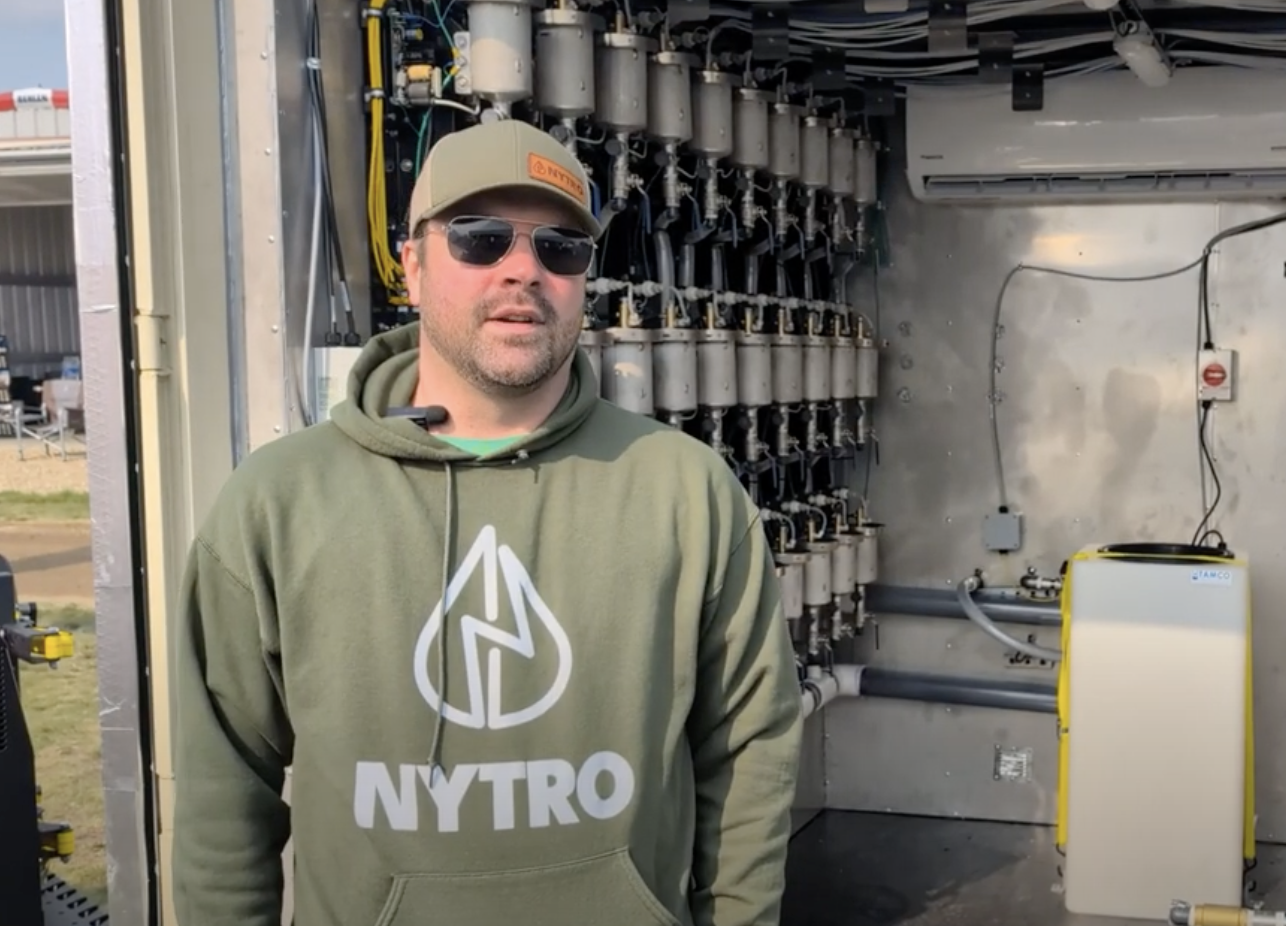OAK BLUFF, Man. – Brett Young Seeds is the only Canadian company to receive registration on a Plant Growth Promoting Rhizobacteria (PGPR) inoculant for canola.
In 13 evaluation trials across Western Canada, the sterile peat-based inoculant called BioBoost gave an average 1.9 bushel yield advantage over non-treated fields.
This is approximately an eight percent increase. BioBoost had the yield advantage in 12 of the 13 trials.
The new product does much the same for canola as conventional inoculants do for pulse crops, but without the nodulation, according to Manas Banerjee, the research and development director for Brett Young Seeds.
Read Also

VIDEO: Green Lightning and Nytro Ag win sustainability innovation award
Nytro Ag Corp and Green Lightning recieved an innovation award at Ag in Motion 2025 for the Green Lightning Nitrogen Machine, which converts atmospheric nitrogen into a plant-usable form.
“For canola, PGPR helps with greater acquisition of nutrients and water from the soil. It’s a more vigorous root system,” said Banerjee.
“You can have the same nutrients and water in the soil for two identical canola plants, but the canola plant with PGPR has better uptake. It’s a healthier plant that resists disease and stress, so the yield is naturally higher.
“But it’s the same as any other inoculant. It has to survive. If a drought is too severe, the inoculants cannot survive and there is no benefit.”
Banerjee said it is a challenge putting a bacteria inoculant on a seed such as canola.
About 95 percent of all canola seed going into the ground is treated with a fungicide. The job of a fungicide is to kill things like bacteria. Fungicide doesn’t differentiate between friendly or harmful bacteria.
“To accomplish this, we do layering over layering on the bare seed,” said Banerjee.
“We have to make a barrier between the toxic (fungicide) and the life (rhizobacteria). That is the technology we are developing in our R&D. The only question is how long is the window? How long does the barrier last?”
So far, the Brett Young researchers have achieved a shelf life of five months for inoculated seed, with an acceptable number of viable bacterial cells surviving.
They have also found their technology to be compatible with canola fungicides such as Helix and Prosper.
The active bacterial ingredient in BioBoost is a selected strain of Delftia acidovorans (RAY209) extracted from Canadian soils. Brett Young researchers say this is one way they can help ensure that the product will be suitable for Canadian prairie canola growers.
One important characteristic of RAY209 is its sulfur oxidizing capability. Whether a field has received elemental sulfur or sulfate sulfur, seed analysis indicated that BioBoost assisted in sulfur uptake.
In the analysis of those seeds, they also found that the inoculant had no impact on oil, protein, oleic acid, linolenic acid or glucosinolate content. In other words, BioBoost is neutral in affecting seed quality that goes to
market.
The research team is also working with a liquid foliar form of BioBoost that can be tank mixed with glyphosate. Some farmers spray before the two leaf stage, while others wait until the four leaf stage. Regardless of when they put on the glyphosate, the BioBoost is effective because most of the product ends up on the soil, which is where they want it.
The company plans to have the foliar registration for 2008 or 2009.
Brett Young put a limited amount of the seed inoculant on the market this spring and hopes to have large quantities available for the 2008 crop, For 2007, it sold enough BioBoost to treat 3,600 acres of canola.
The company is also working with a PGPR for soybeans, called SoySuperb, which was sold in limited quantities in the United States in 2007. Its alfalfa PGPR, called AlfaBoost, has also been made available in the U.S. in limited quantities. The CornBoost product is not as far advanced, and it now is in the experimental stage in the U.S.
The only Canadian registration so far is BioBoost for canola.
When it is commercially available next spring, Banerjee expects it to cost growers about $5 per acre as a seed inoculant.
For more information, contact Manas Banerjee at 204-478-2238.

















